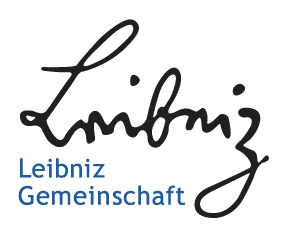Policy Brief: Embracing Challenges and Empowering Recommendations to Foster Climate Neutrality
The energy challenge in Europe requires multifaceted and comprehensive responses. To ensure a sustainable and secure energy future while accelerating the green transition, several key developments with complex interdependencies should be successfully implemented.
 In these complex circumstances, digitalisation entails the potential to significantly contribute to the gradual decentralisation of the EU energy system. Undeniably, the European energy system is undergoing a profound transformation towards climate neutrality by 2050. According to the European Green Deal, this transition would encompass switching from fossil fuels to renewable and low-carbon energy sources, improving energy efficiency, and creating a more sustainable and interconnected energy system.
In these complex circumstances, digitalisation entails the potential to significantly contribute to the gradual decentralisation of the EU energy system. Undeniably, the European energy system is undergoing a profound transformation towards climate neutrality by 2050. According to the European Green Deal, this transition would encompass switching from fossil fuels to renewable and low-carbon energy sources, improving energy efficiency, and creating a more sustainable and interconnected energy system.
In this policy brief, we will firstly explore certain challenges, which are interconnected with this key transition, to then provide recommendations in alignment with the EC’s commitment to establish a stable energy market and sustainably transition to a low-carbon economy, while navigating the complexities of international geopolitics.
Challenges
While the energy sector is inextricably linked with citizen welfare and economic development, multifarious challenges permeate the contemporary energy landscape. To consider the diversity of energy challenges, we will firstly outline internal challenges with the EU landscape, to then explore particular challenges of the external geopolitical environment.
Internal factors
Internal factors such as high bureaucracy and low level of digitalization in some EU countries have slowed down the development of renewable energy. Inherently, the The EU energy system is complex and fragmented, involving multiple actors and levels of decision-making with diverse, occasionally antagonistic, regulatory frameworks, per EU member country member. Ultimately, this poses governance and regulatory challenges, which accumulate to protracted decision-making processes and response times.
The aforementioned trends are exacerbated by the already increased prices of fossil fuels and electricity, affecting consumers, businesses, and society at large. Next, technological and infrastructural barriers may impede timely integration of renewables into a complex electricity grid, which requires adequate interconnections, storage systems, smart grids, and demand response.
External Factors
In the external environment, the intensified geopolitical conflict, exacerbated by Ukraine’s invasion, has increased instability and uncertainty within the EU Energy Market, due to the previously established high dependence on fossil resources. Furthermore, renewable energy encompasses inherent dependencies and reliance on weather and environmental conditions, e.g. daylight availability. Last but not least, another topic of consideration would be the dependence on critical materials, e.g. lithium, nickel, cobalt, copper, rare earth elements (REEs), among others, substantial amounts of which are required for renewable energy installations (f.e. solar panels) and storage solutions, which highlights the significance of available and affordable critical materials for a successful energy transition.
Having outlined diverse challenges in the EU’s internal and external environment, the policy brief will now proceed with providing recommendations to foster the digitalization, decentralisation, and integration of renewables in the EU energy system.
Recommendations
Innovative Energy Market Models
A key recommendation would entail fostering and boosting alternative energy market models, f.e. those energy markets where energy producers can be at the same time energy consumers too (so-called “prosumers”). Typically, those prosumers could be farmers that possess a certain amount of solar panels on their buildings which are used to generate energy to cover their own needs.
As an example for an innovative energy market model focused on prosumer, the European Environment Agency (EEA) mentioned a Use Case in Greece:[4] there, a support scheme for net metering has been established which allows prosumers to offset consumed and self-produced electricity with a temporary deferral. This way, the energy supplier only bills the difference between the energy consumed and injected to the grid (i.e. the “net amount”). This concept proved to be especially profitable for prosumers with on-site photovoltaic installations.
A Decentralized Organization of the Energy Market
In order to maintain energy security, reliability of energy supply as well as strengthen the autonomy of local prosumers, it can be suggested to invest into decentralising measures of the European, national and local energy supply systems as well as renewable energy power plants. Decentralised (renewable) energy systems are more flexible and less susceptible to f.e. power outages of a greater extent.
Balancing out the Volatility of Renewable Energy Systems
One of the biggest fallbacks of renewable energy systems is the volatility of energy generation. For instance, the solar power systems do not generate electricity during nighttime or the wind turbines do not generate power on windless days. Therefore, a combination of renewable energy sources and power plants with storage systems and a stronger integration into smart energy distribution systems is highly necessary to ensure energy security in the long-run.
Part of the solution for this issue could be to invest in a) energy storage solutions such as hydrogen or b) to invest in smart grid infrastructure. This way, energy supply and demand discrepancies, both time-wise and location-wise, can be balanced out. Also, we highly recommend considering new energy market models that involve prosumers. This way, the energy consumers (that could be energy generators at the same time) would have more freedom to meet their own needs.
Improved Energy Market Conditions
The EU and national regulatory frameworks should be designed in a way that SMEs and startups that are specialised on renewable energy to easily enter the energy market, enabling them to offer innovative energy storage solutions and tools that contribute to the optimization of smart energy grids.
Minimising Economic and Social Costs
In order to ensure energy affordability, security, and solidarity among EU Member States, while also supporting the regions and sectors most affected by the energy transition, the EU needs to minimise the economic and social costs of renewable energy. The EU has proposed several measures to mitigate the impact of the crisis, such as the Social Climate Fund, the Just Transition Fund, and the Recovery and Resilience Facility.
Tackling Technological and Infrastructural Barriers
It is recommended to foster the development and deployment of clean technologies, such as hydrogen, biomethane, and carbon capture and storage. The EU has set targets and standards for renewables, energy efficiency, and emissions, and has supported research and innovation in the energy sector.
Governance and regulatory challenges
In order to tackle governance and regulatory challenges, it is advised to ensure coherence, coordination, and compliance among its policies and instruments, and between its internal and external dimensions. Furthermore, this would include engaging with stakeholders and citizens, and fostering public acceptance and participation in the energy transition.
Conclusion
Concluding, this policy brief considers some of the main challenges that the EU faces in decentralising and integrating renewables in its energy system. The EU has already taken several steps to address them, but more efforts and cooperation are needed to achieve its ambitious goals and vision for a green and resilient future.
As a future outlook it can be stated that the EU energy sector is expected to undergo a major transformation in the coming decades, as it pursues its goals of achieving climate neutrality by 2050 and reducing greenhouse gas emissions by 55% by 2030. More specifically, the share of diverse renewable energy sources such as wind, solar, hydro, biomass, among others will be enlarged in the electricity generation mix. Energy efficiency, especially in the building and transport sector will be constantly improved.
A more integrated and interconnected energy system, where electricity, gas, heat, and other energy carriers are optimally combined and managed, using smart grids, storage, and digital solutions will be strived for as well as a diversified and secure energy supply, relying on domestic production, strategic partnerships, and a competitive internal market. Innovation and investment for the support and deployment of clean technologies such as hydrogen, carbon capture and storage as well as batteries will be strengthened. Last but not least, consumers and citizens will be empowered to participate in the energy transition so that they can benefit from better services and lower prices and contribute to the EU’s climate and digital goals.
References
[1] “Energy prosumers in Europe Citizen participation in the energy transition”, European Environment Agency EEA Report No 1/2022, accessed May 6, 2024, https://www.eea.europa.eu/publications/the-role-of-prosumers-of [2] “Four challenges of the energy crisis for the EU’s strategic autonomy”, EPRS | European Parliamentary Research Service, accessed May 6, 2024, https://www.europarl.europa.eu/thinktank/en/document/EPRS_BRI(2023)747099 [3] Inês Campos, Guilherme Luz Pontes, Esther Marín-González, Swantje Gährs, Stephen Hall, Lars Holstenkamp, “Regulatory challenges and opportunities for collective renewable energy prosumers in the EU.”, Energy Policy 103, no. 111212 (March 2020). https://doi.org/10.1016/j.enpol.2019.111212 [4] “The top ten problems for renewable energy in Europe are not linked with nature protection”, European Environmental Bureau EEB, accessed May 6, 2024, https://eeb.org/library/the-top-ten-problems-for-renewable-energy-in-europe-are-not-linked-with-nature-protection/Leitung Wissens- und Technologietransfer, Koordinatorin von EU-Projekten // Head of Knowledge and technology transfer, Coordinator of EU Projects
Stellvertreter Kommunikation und Verbreitung PLATOON // Communication & Dissemination Deputy



